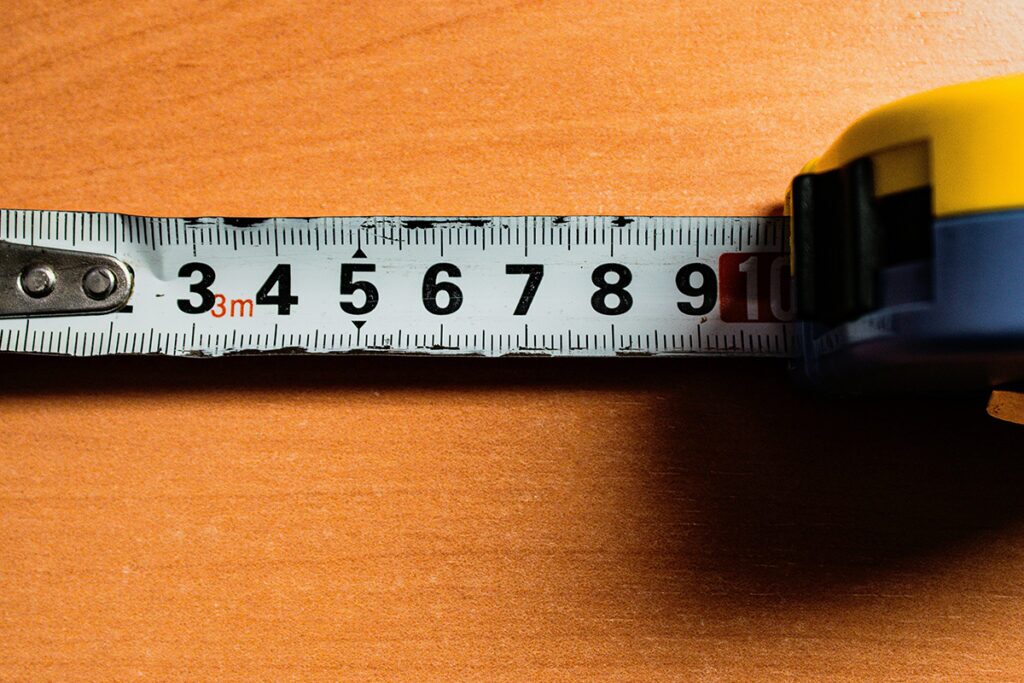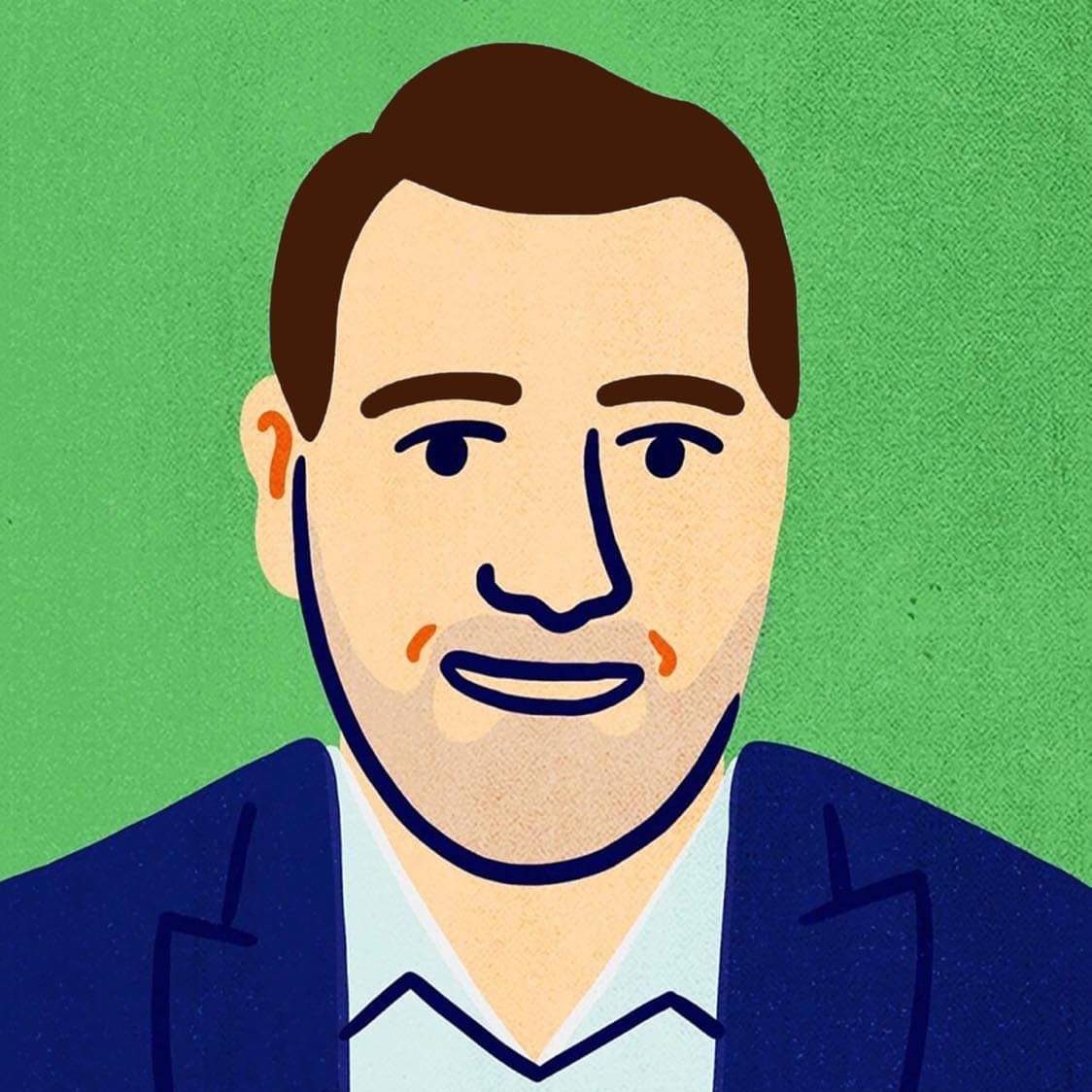We recently published several articles on the so-called “vibecession” – consumers and businesses feeling that we are already in a downturn in the U.S., Germany, and the U.K. while actual economic data like GDP and consumer spending has been holding up better than expected.
This weird disconnect between soft data and hard data couldn’t last forever; something had to give. And indeed, it now increasingly looks like consumers and businesses are slowly becoming more optimistic again as the massive economic downturn that many feared is not happening (yet).
Consumers Feeling Happier, but Not Quite Happy
Consumer confidence, according to the GfK survey, saw the largest increase in several years in February – albeit from a record low, so that it is now just barely exceeding the low from the Great Recession (aka the Global Financial Crisis).
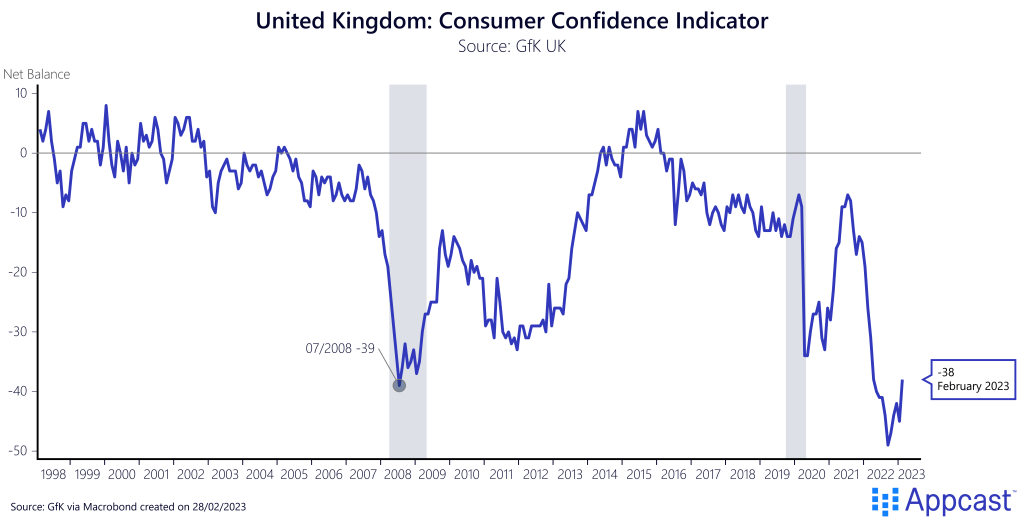
Business confidence has been holding up much better than consumer confidence in the U.K. and is well above the depressed values from the 2008 financial crisis and the 2020 COVID-19 economic downturn. As one can see, business confidence has also picked up this February and is reverting to its long-run mean.
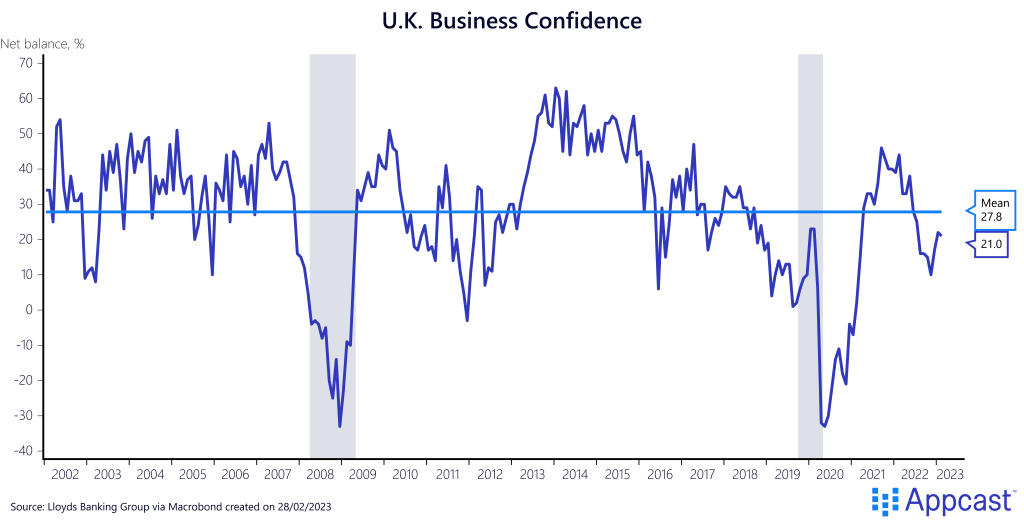
The PMI services activity index is also suggesting that the vibecession in advanced economies is coming to an end. The index has recently picked up and values above 50 are generally considered to indicate economic expansion (and values below 50, economic contraction).
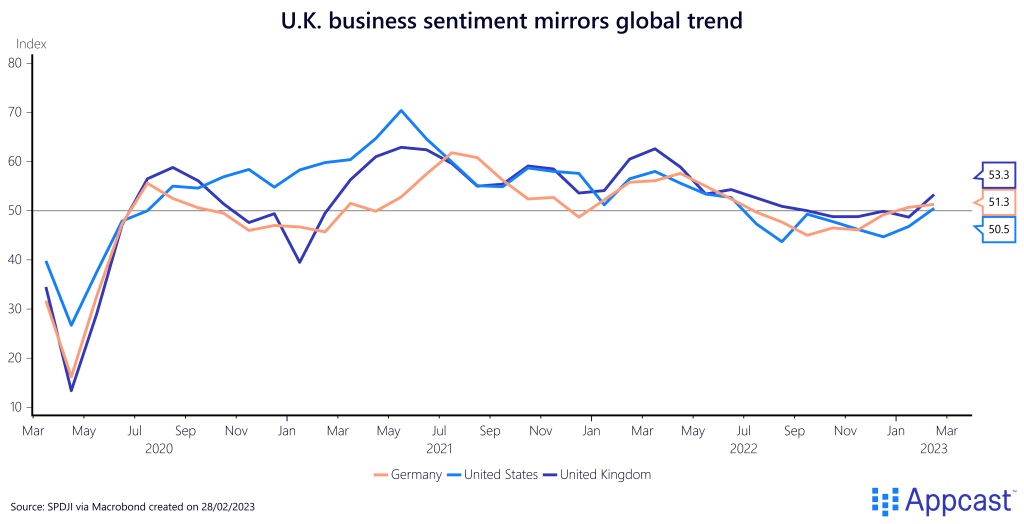
The Next Challenge: Housing
One major point of concern for the U.K. economy remains the housing market. Mortgage rates have surged as the Bank of England (BoE) is trying to re-establish its credibility as a credible inflation fighter by hiking rates. With mortgage rates being several percentage points above where they were just a year ago, mortgage repayment costs have surged. For the first time in more than a decade, it is now cheaper to rent than to pay back your mortgage. While house prices have only declined slightly, transactions have plunged. For now, the U.K. housing market is pretty much dead in the water and the expectations are very much for prices to decline. The Building Society Association (BSA) has a house price tracker survey and 31% of respondents now see a decline of up to 10% and 18% see a decline of more than 10% in the next twelve months.
A large revaluation of house prices would depress consumer spending and potentially plunge the economy into a downturn. While the inflation outlook has markedly improved, another negative commodity price shock with inflation stickier than expected would make the BoE hike its policy rate even more. If rates are increasing further and staying higher for longer than what markets currently anticipate, house prices would be likely to decline by more than 10%.
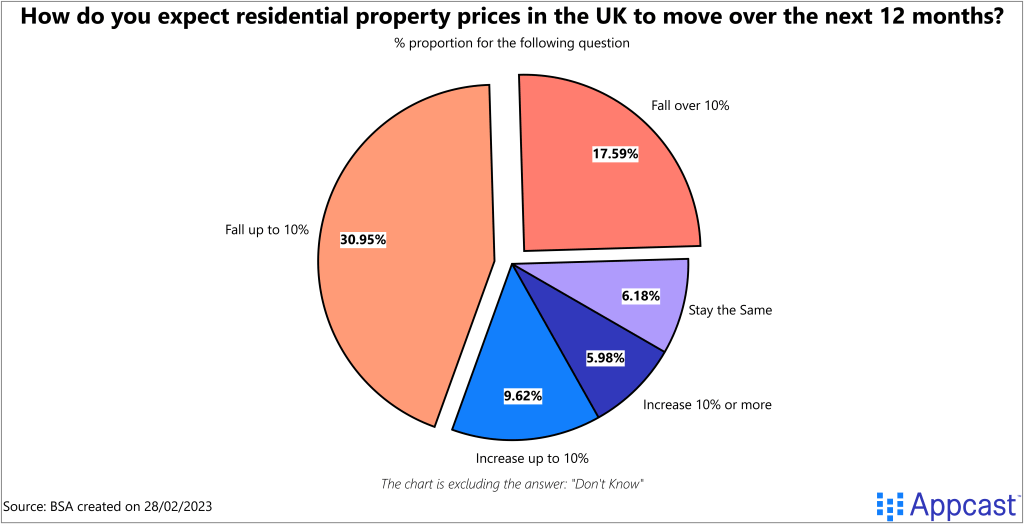
The U.K. labor market remains extremely tight for now even as the economy has been slowing down. Brexit and the pandemic have induced a labor shortage across many sectors in the economy, with blue-collar positions, in particular, hard to fill.
The following survey from the BoE shows to what extent recruiters are still struggling to fill open positions even as the situation has already improved a lot compared to the very tight labor market in 2022.
About 35% of respondents think it is currently much harder to find new employees while 34% think it a little harder. Less than 12% think that it is currently easier to recruit.
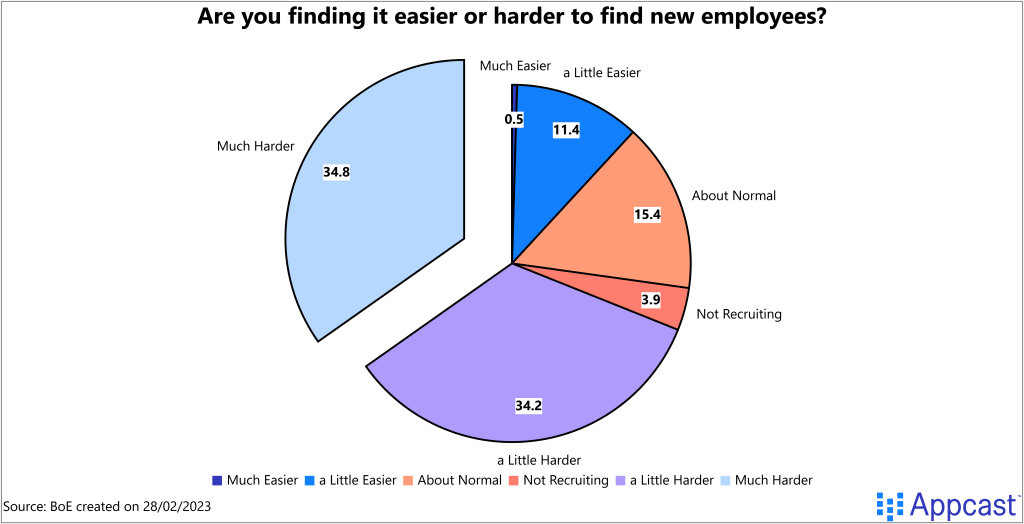
Conclusion
Overall, it currently looks like the U.K. economy is holding up and will only face a shallow recession in the first half of 2023. The consumer and business outlook are currently improving.
On the labor market front, recruiters are still having a hard time to fill open positions, but it varies quite a bit by sector. Shortages are more widespread for blue than white collar occupations right now. The U.K. labor market is on track to normalize as vacancies have declined somewhat from the abnormally high levels in 2022.

